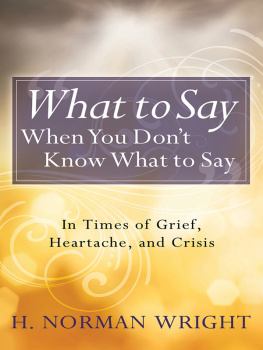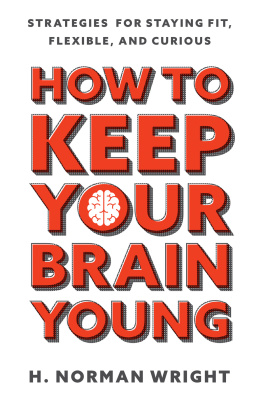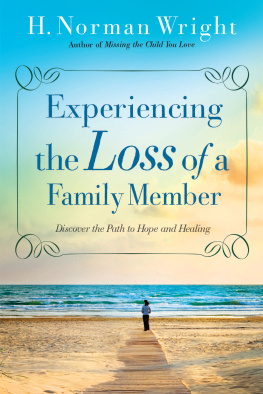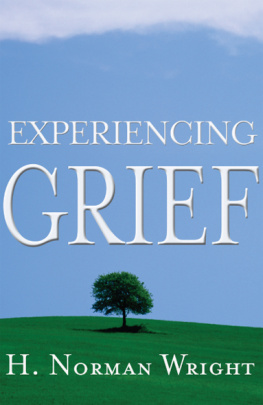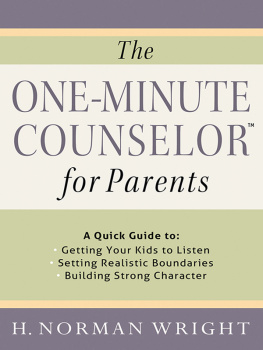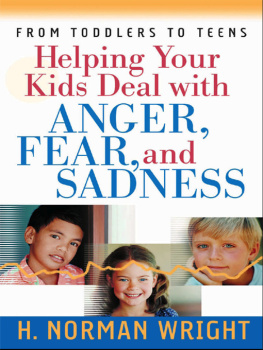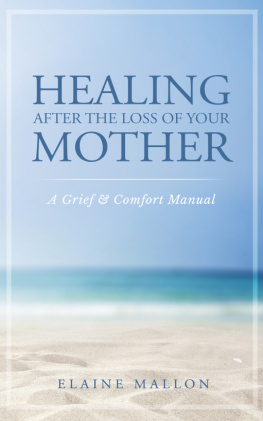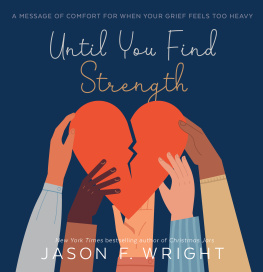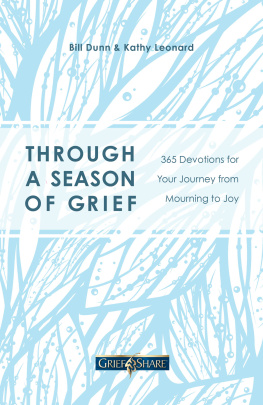

HARVEST HOUSE PUBLISHERS
EUGENE, OREGON
Unless otherwise indicated, Scripture quotations are from the Holy Bible, New International Version, NIV. Copyright 1973, 1978, 1984, 2011 by Biblica, Inc. Used by permission. All rights reserved worldwide.
Verses marked NASB are taken from the New American Standard Bible , 1960, 1962, 1963, 1968, 1971, 1972, 1973, 1975, 1977, 1995 by The Lockman Foundation. Used by permission. (www.Lockman.org)
Verses marked AMP are taken from The Amplified Bible, Copyright 1954, 1958, 1962, 1964, 1965, 1987 by The Lockman Foundation. All rights reserved. Used by permission. (www.Lockman.org)
Verses marked TLB are taken from The Living Bible, Copyright 1971. Used by permission of Tyndale House Publishers, Inc., Wheaton, IL 60189 USA. All rights reserved.
Verses marked NCV are taken from the New Century Version. Copyright 2005 by Thomas Nelson, Inc. Used by permission. All rights reserved.
Verses marked MSG are taken from The Message. Copyright by Eugene H. Peterson 1993, 1994, 1995, 1996, 2000, 2001, 2002. Used by permission of NavPress Publishing Group.
Verses marked NKJV are taken from the New King James Version. Copyright 1982 by Thomas Nelson, Inc. Used by permission. All rights reserved.
Cover photo mythja / Shutterstock
Cover by Dugan Design Group, Bloomington, Minnesota
WHAT TO SAY WHEN YOU DONT KNOW WHAT TO SAY
Copyright 2014 H. Norman Wright
Published by Harvest House Publishers
Eugene, Oregon 97402
www.harvesthousepublishers.com
Library of Congress Cataloging-in-Publication Data
Wright, H. Norman.
What to say when you dont know what to say / H. Norman Wright.
pages cm
ISBN 978-0-7369-5847-9 (pbk.)
ISBN 978-0-7369-5848-6 (eBook)
1. Church work with the bereaved. 2. FriendshipReligious aspectsChristianity. 3. Interpersonal relationsReligious aspectsChristianity. 4. Consolation. 5. CommunicationReligious aspectsChristianity. I. Title.
BV4460.W75 2014
248.8'6dc23
2013048429
All rights reserved. No part of this electronic publication may be reproduced, stored in a retrieval system, distributed, or transmitted in any form or by any meanselectronic, mechanical, digital, photocopy, recording, or any otherwithout the prior written permission of the publisher. The authorized purchaser has been granted a nontransferable, nonexclusive, and noncommercial right to access and view this electronic publication, and purchaser agrees to do so only in accordance with the terms of use under which it was purchased or transmitted. Participation in or encouragement of piracy of copyrighted materials in violation of authors and publishers rights is strictly prohibited.
Contents
I n one small European village was a town square that held a special statue. This statue was the pride and joy of the residents, but World War II arrived, and soon the bombs began falling on the town. One day the statue was hit and blown to pieces. The residents collected all the shattered pieces and slowly did what they could to rebuild it. When they finished the reconstruction of their beloved statue of Jesus, they noticed that the only pieces missing were the hands. So they placed a plaque at the base of the statue with these words: Now we are the only hands that Jesus has.
Isnt this our calling to those around us? We are Jesus hands, as the apostle Paul told the Christians in Corinth: Praise be to the God and Father of our Lord Jesus Christ, the Father of compassion and the God of all comfort, who comforts us in all our troubles, so that we can comfort those in any trouble with the comfort we ourselves receive from God (2 Corinthians 1:3-4).
Many years ago (more than Id like to admit), I was serving as minister of education and youth. A man by the name of Alan Loy McGinnis attended our church while completing his graduate work. Since he was also a minister, he would preach from time to time in the evening services. One Sunday night he walked up to the pulpit and said, Tonight I would like to share with you what to say, what not to say, what to do, and what not to do at a time of bereavement.
Ours was not a note-taking congregationuntil that moment. As I sat on the platform I could see people reaching for offering envelopes, prayer requests cards, or any other piece of paper they could find to write on. I still have my notes from that evening. It was the first (and unfortunately the last) time Ive ever heard a message on how to help another person at a time of need. Those in attendance that evening left with a greater sense of confidence on how to help people.
Yes, well be more likely to reach out if we know what to say. And yes, helping a hurting person can be a bit scary. So if we have the desire to reach out and help, why do we hesitate? Because we grapple with questions like What do I say? What do I do? What should I avoid? We want to do the right thing and say what will help, but were not sure what will accomplish that.
Thats where What to Say When You Dont Know What to Say comes in! This easy-to-read book offers the knowledge, wisdom, and resources you need to confidently and competently help family, friends, and acquaintances when they need comfort and support.
Help for You as Caregiver
Before becoming significantly involved in helping others, you need to be aware of a problem that none of us are immune to. It has different names, including compassion fatigue, helper shutdown, or helper burnout, and it can happen to doctors, nurses, counselors, rescue workers, and anyone involved in helping others. It seems to be a case of emotional contagionyou end up catching the disorder of the person youre helping. You become emotionally drained by caring too much. Its stress from wanting to help another person. When you minister to a friend, he may leave feeling better, but now youre absorbed in his problems emotionally as well as mentally.
This can happen for several reasons. It can be an overload if youre helping a number of hurting individuals at the same time. The desire to help others is good, but you need to realize not everyone will be helped and there are some who arent willing to take the necessary steps to change. Some helpers end up with mission failure or they say, I didnt help them enough. This wont happen to you. The Person bringing the changes about will be the Lord. So as you help, you also need to relinquish your friend to Jesus care and attention. Your value in helping others is to be there for them. Youll be a more effective helper when you follow the helpful guidelines in this book, but dont evaluate your success based on how well the person youre helping responds. As a professional counselor for many years, I learned that sometimes helpers dont get to see the results of our efforts as people move on. If you are too empathetic and feel what your friend is feeling too much, you will begin to carry his burdens around. Thats not your job. Remember, the person youre helping is in Gods hands, not yours.
If you have unresolved trauma in your life, be prepared to have it activated when you work with someone who has experienced trauma. What you hear may hit close to home.
What will especially impact you is helping children who have experienced trauma. This happens to even the most experienced professional helpers.
What can you do? Make sure you maintain balance in your life. You need to allow time for tending to and nurturing yourself through the Word, healthy friendships, exercise, recreation, devotional reading, and laughter. You need to allow others to care for you too.
Next page
